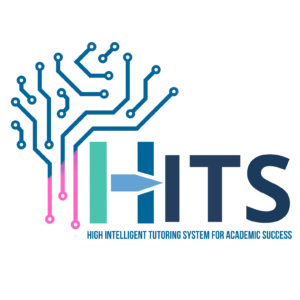
As the HITS project continues to explore the integration of Artificial Intelligence in Higher Education, Chapter 5 of our Handbook offers an in-depth look into what students, educators, and mentoring experts really think about Intelligent Tutoring Systems (ITS).
Based on participatory research involving over 500 participants from 64 universities across Europe, this chapter brings together both quantitative data (from surveys) and qualitative insights (from focus groups) to highlight diverse perspectives, needs, and expectations.
What’s inside this chapter?
Students’ Views
Students value tutoring not only for academic support but also for developing key life skills such as time management, problem-solving, and confidence. They express a strong desire for personalized and student-centered ITS, and emphasize the importance of maintaining human interaction alongside digital innovation. Key concerns include data privacy, the digital divide, and accessibility.
Educators and Mentors
Tutors and faculty members recognize mentoring as a vital part of both student support and their own professional development. They see ITS as a tool to enhance—but not replace—their role, especially in fostering critical thinking, collaboration, and emotional support. They highlight the need for training, structured support, and ethical standards in the implementation of AI-driven solutions.
Shared Insights
All three groups—students, educators, and tutoring experts—agree on several critical priorities:
The need for a centralized, intuitive platform that integrates all learning tools and tutoring services.
A commitment to ethical AI use: transparency, data privacy, and fairness.
The importance of preserving the human dimension of tutoring and education.
Conclusions and Recommendations
The chapter outlines six key recommendations for designing and implementing ITS in higher education:
User-centered design focused on accessibility, personalization, and engagement.
Ethical integration of AI, ensuring that technology supports—not replaces—human connection.
Unified digital platforms to streamline access and communication.
Comprehensive training for educators and tutors.
Promoting collaboration and interaction through ITS.
Ongoing research and evaluation to adapt systems to evolving needs.
Intelligent Tutoring Systems have the potential to revolutionize higher education, but only if we balance innovation with inclusion, ethics, and empathy. Chapter 5 provides a roadmap for achieving that goal—shaped by the voices of those who matter most.
